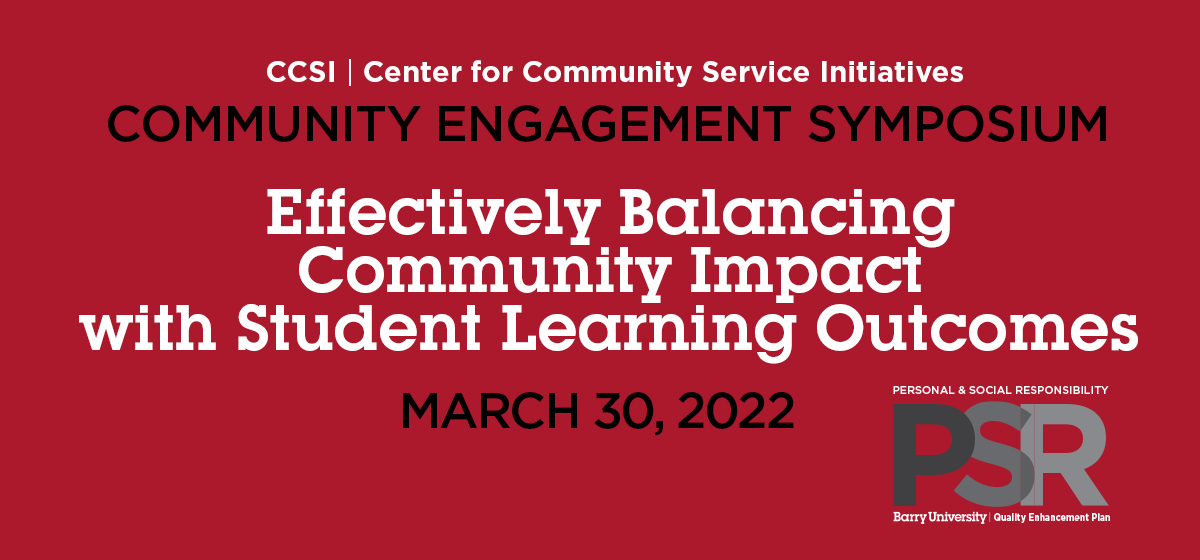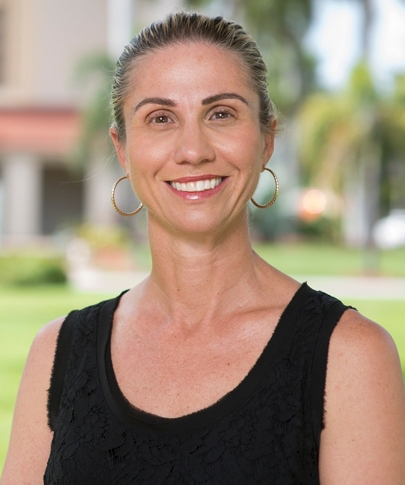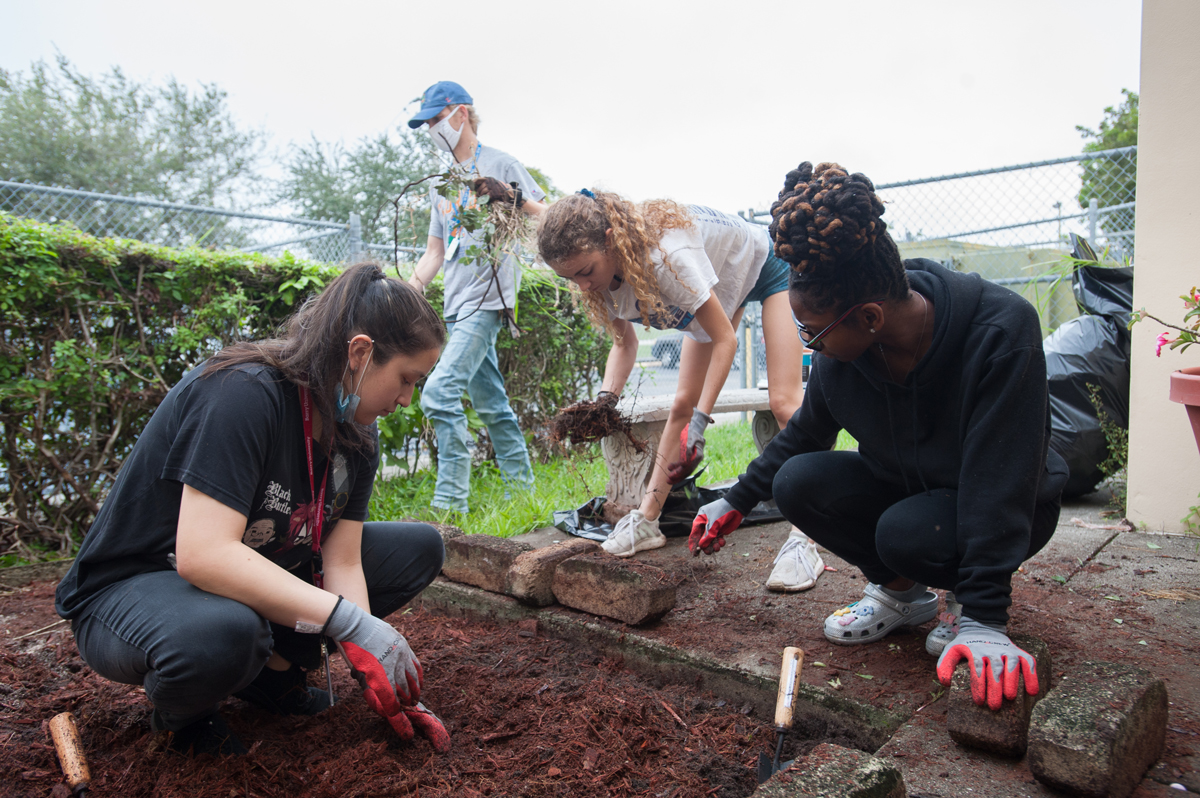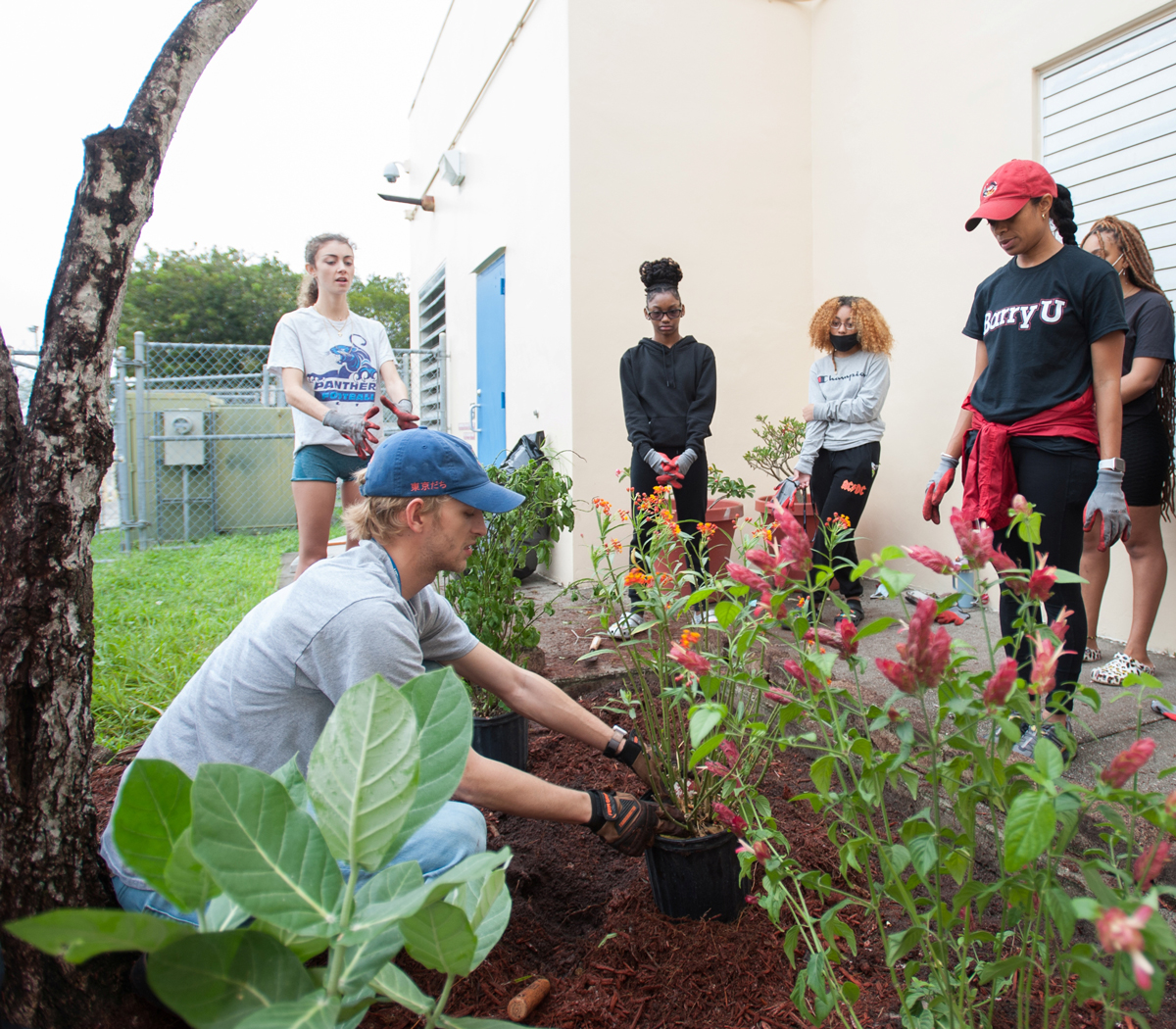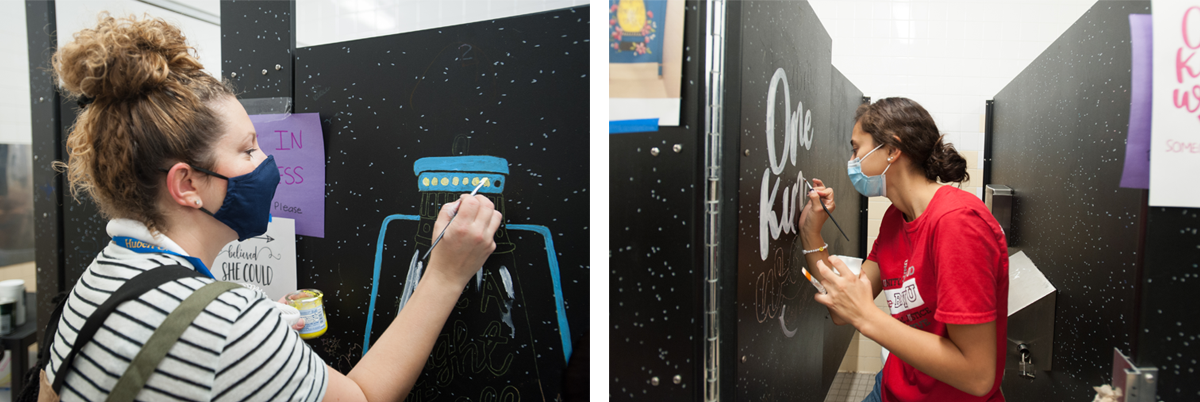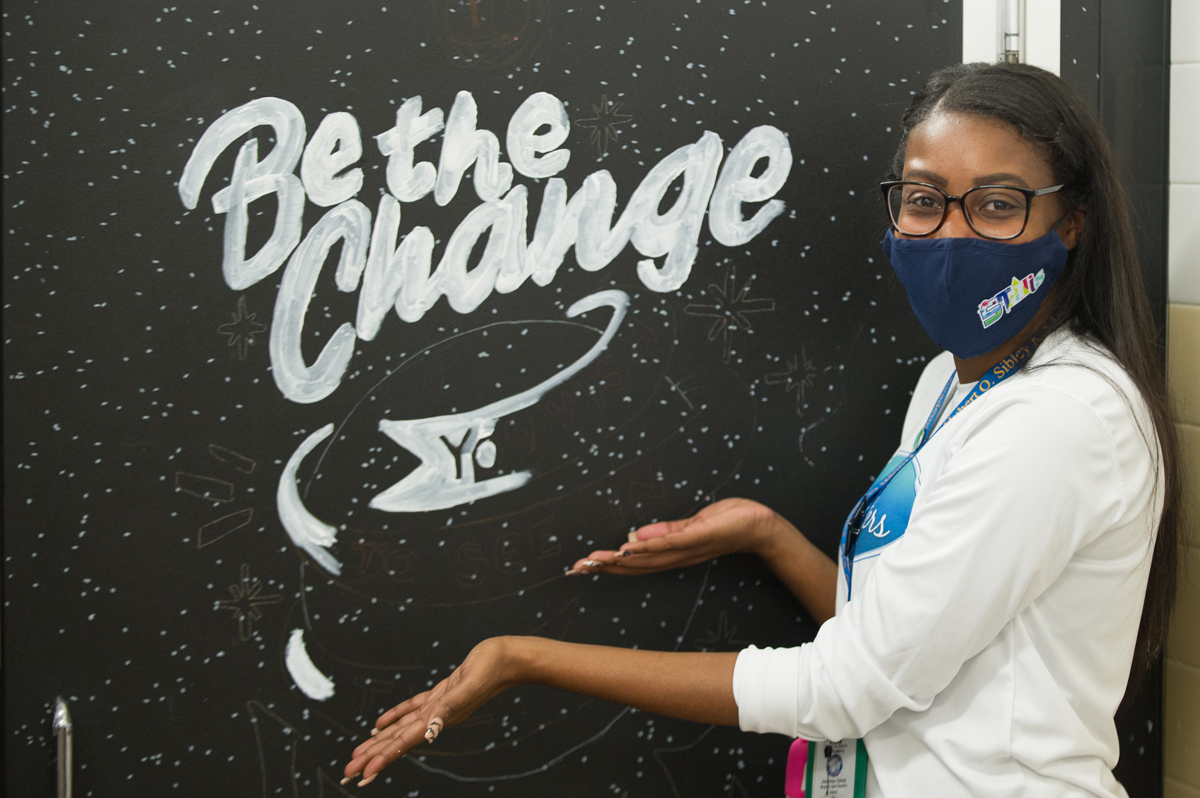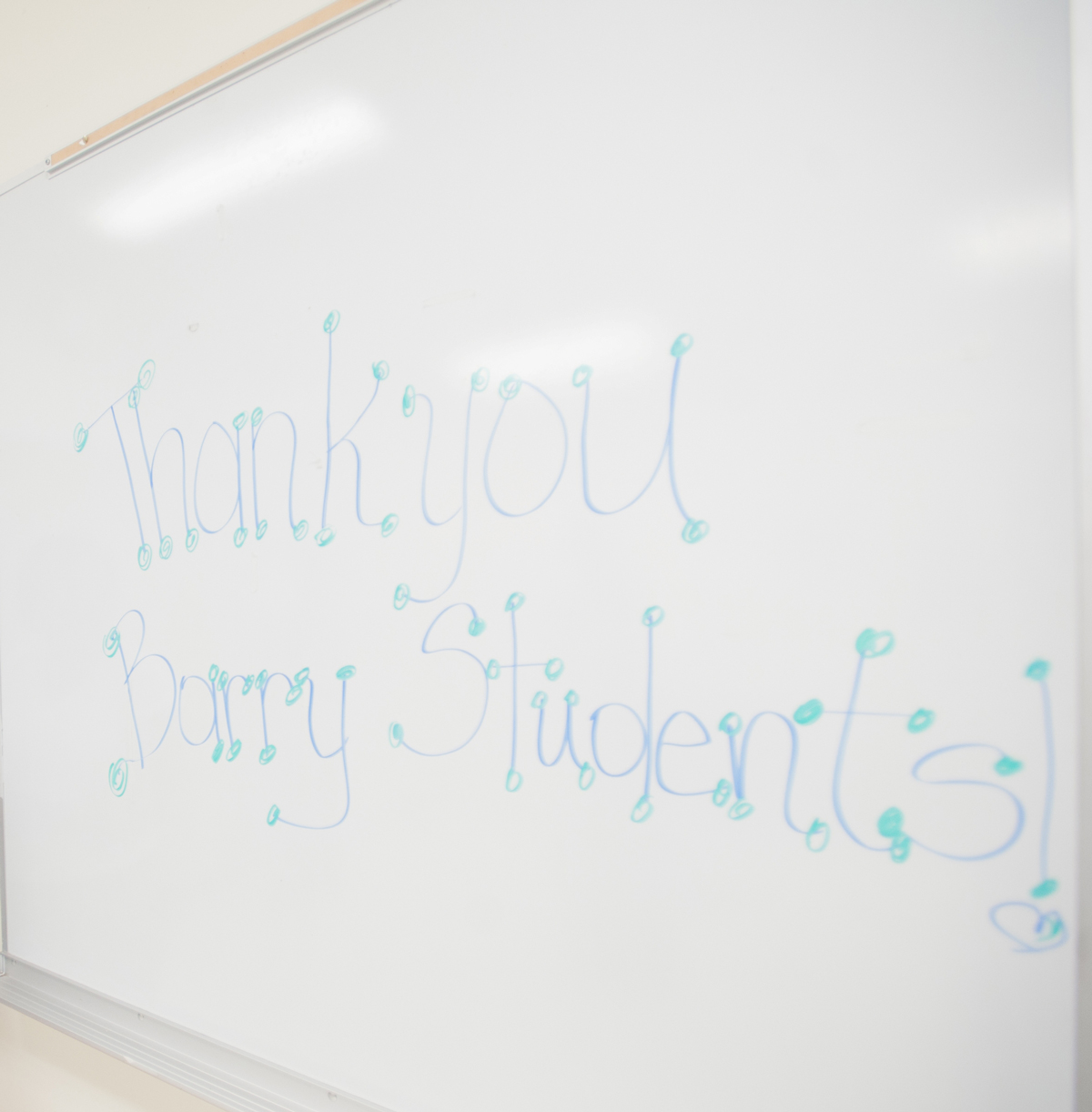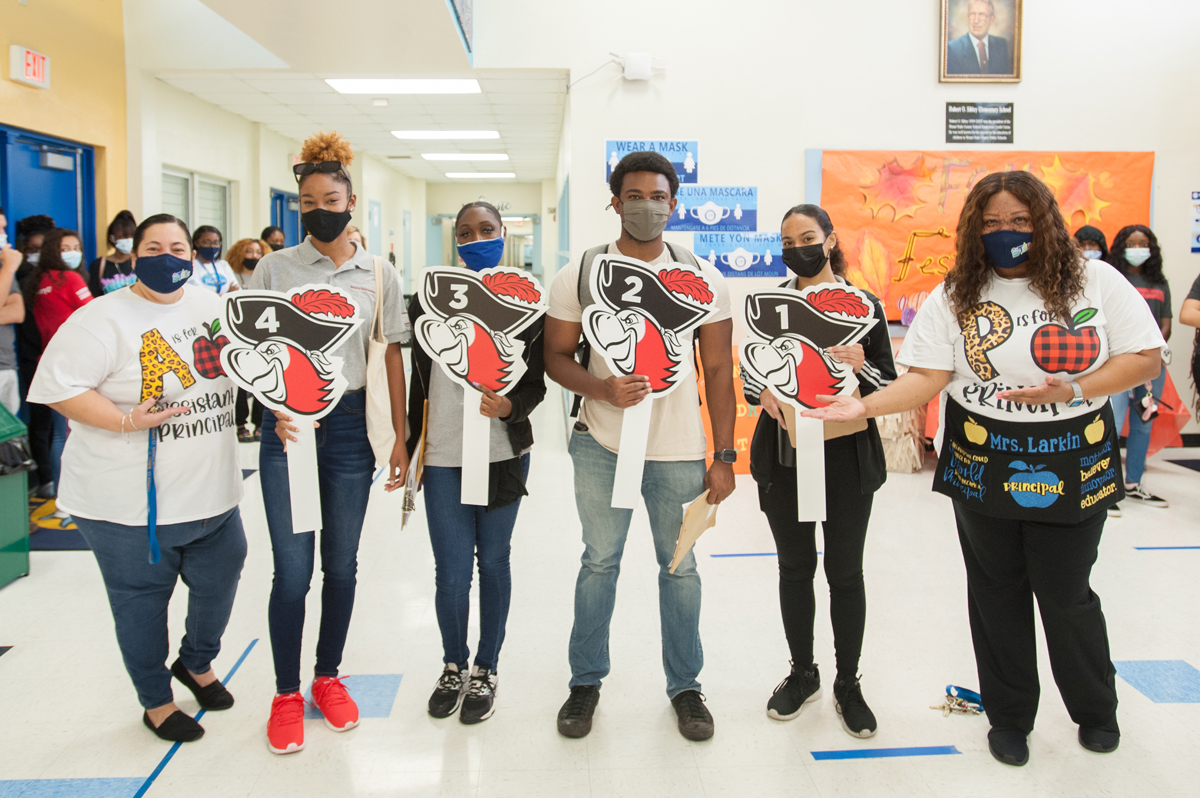Four Student Leaders Explain Their Commitment to Serving the Community
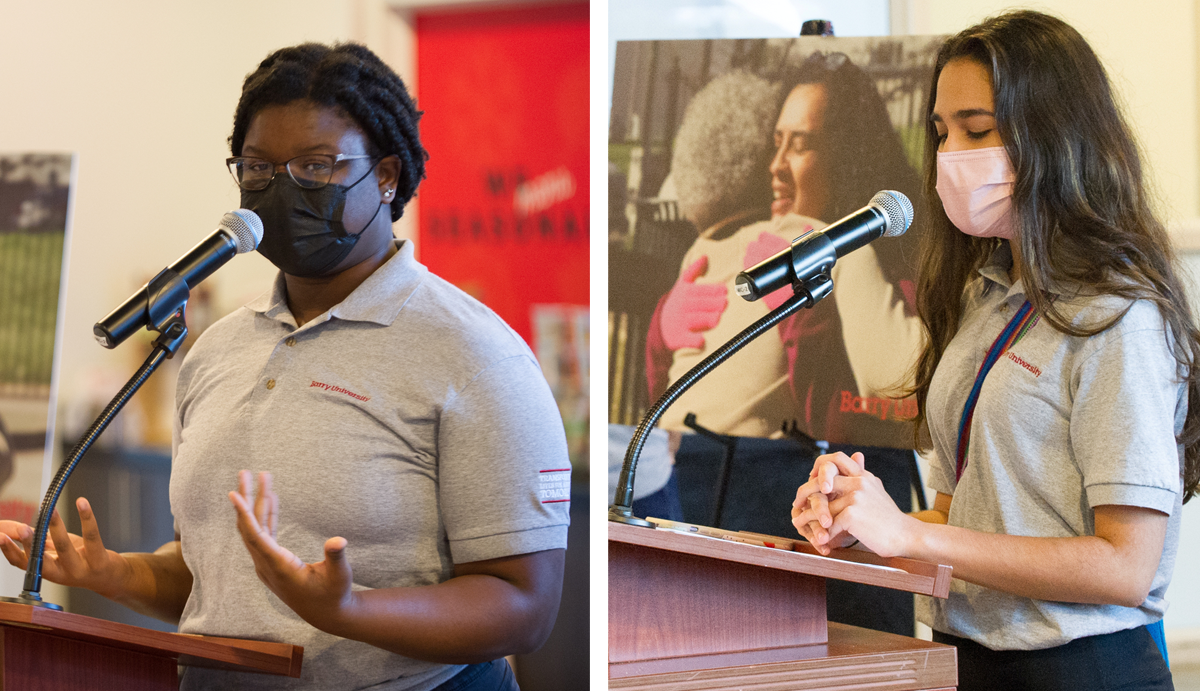
Student leaders Derricha Joseph Taylor (left) and Maria Jose Fernandez share with Founders’ Day of Service participants their reasons for serving the community. Daryle Pyles Jr. and Samuel Vilmeau also articulated what service means to them.
To Samuel Vilmeau, service means “showing compassion, showing a community that they aren’t alone in their times of inequality and injustice, that there are people like them and alongside them fighting for a better future.”
A junior majoring in sports and exercise sciences, Samuel is one of four Barry Service Corps (BSC) fellows who recently explained their commitment to serving the community. The student leaders spoke in front of university leaders on Founders’ Day of Service earlier this month.
As Derricha Joseph Taylor, Daryle Pyles Jr., and Maria Jose Fernandez also did, Samuel emphasized the importance of service and thanked fellow students for turning out to participate in the day of service.
“Today, as fellows [in the Barry Service Corps], we are excited to work alongside you, helping our community,” Maria told her college-mates.
“A little help goes a long way,” Derricha noted as she made clear her reason for engaging in community service.
BSC fellows form the civic leadership squad within the Barry Service Corps. They work within teams to collaborate with community organizations, support community engagement programs, and develop civic leadership skills. Fellows practice advocacy, activism, and community organizing, and they take other pathways to social change, while addressing issues related to globalization, educational equity, civic health, and food security.
“As a Barry Service Corps fellow,” Samuel said, “I support my justice team in tackling food insecurity within our community. … Service to me is being human and showing compassion. … To me, service is a hands-on approach to creating the future my family dreamed of creating when we came to America.”
Develop Potential and Create Opportunities
In her remarks, Maria pointed out that engagement through community service is important to her because she wants to help people in need. She also wants to work with others to address various issues that affect the society.
“We must care about others and help them to develop their potential and create opportunities,” the student leader suggested.
A sophomore majoring in public relations and advertising, Maria mentioned that she was from Honduras and that she had a longtime desire to work for her community and help people in need.
“I was engaged in working in the rural areas of my hometown with the help of medical brigades,” she said, recalling life in her native Honduras. “Engaging and caring about others have helped me grow as a human being and identify the biggest issues and challenges that affect daily our societies.”
As a BSC fellow, Maria is a member of the Global Citizenship team. Global citizens champion fundamental human rights for all and seek fairness for immigrants.
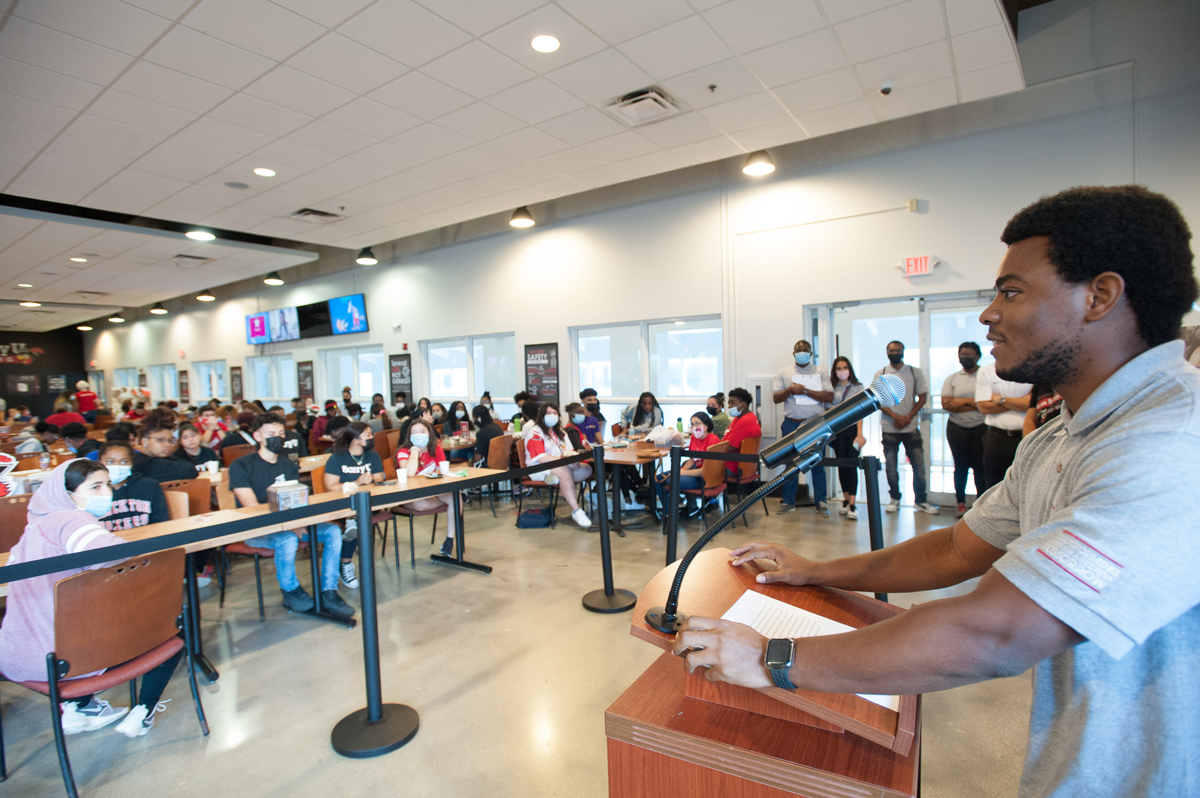
BSC Fellow Samuel Vilmeau shares with dozens of students, as well as university administrators, why he engages in community service.
For Derricha Joseph Taylor, the ingrained habit of lending a helping hand is constantly motivating. “This stems from the way I was raised,” she said. “I was taught to help those at any cost when and if you can, and to never leave others stranded when you have the ability to assist.”
Like Maria Jose Fernandez, Derricha serves on the social justice team focused on global citizenship. “Together we stand to seek to end economic injustice and human rights violations,” Derricha noted.
“I engage in community service because I feel as if a little help goes a long way,” Derricha declared. “Working together with others to complete a memorable goal is something I’ve always felt like what was destined for me.”
A junior majoring in business management, she added: “One of my long-term goals is to open up my own mental health resource facility to those in need. The resource facility will consist of volunteers like myself to assist with … groceries, human resources, hygiene products, or even just advice and guidance.”
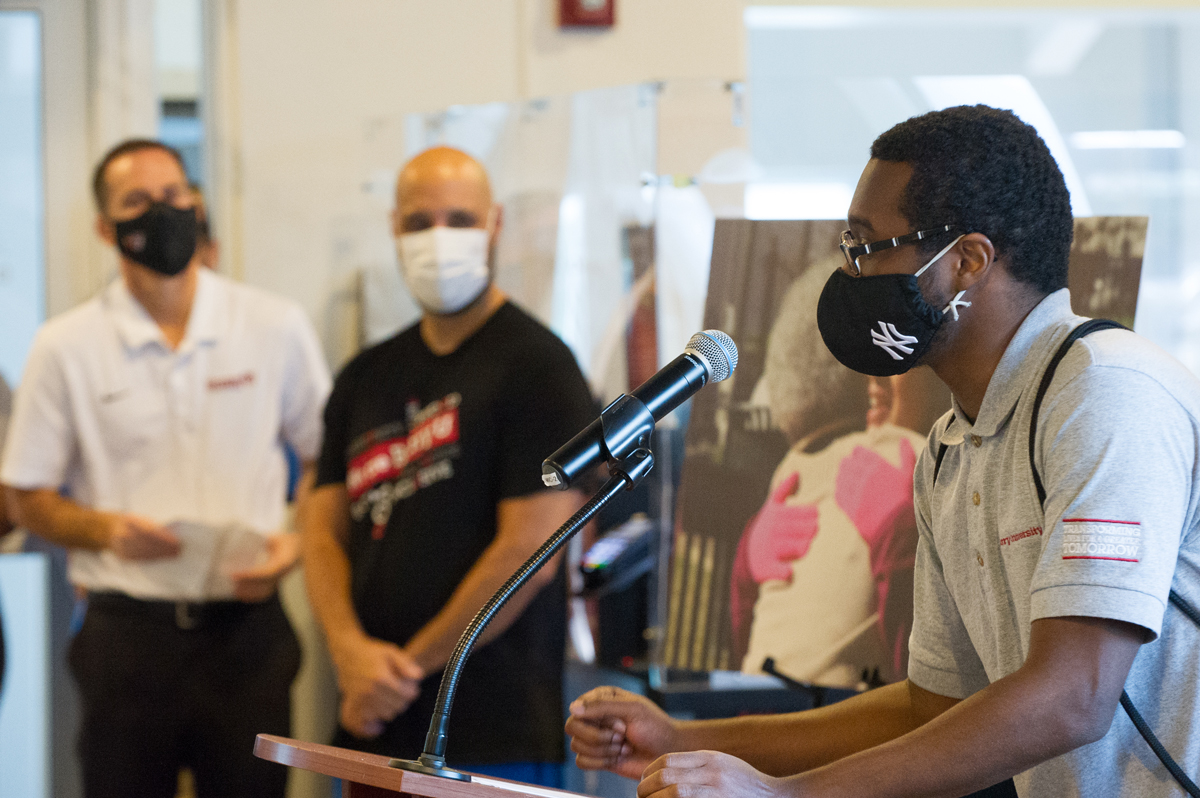
Student leader Daryle Pyles Jr. expresses his commitment to civic engagement and to promoting “people power.” Barry’s President, Dr. Mike Allen, and Associate Provost, Dr. Victor Romano, were among university leaders in attendance.
Expressing his commitment to civic engagement, Daryle Pyles Jr. stressed the importance of collective efforts to address social issues and bring about social change.
He said: “I believe community service is important. It’s times like this where people can come together and make connections with each other, which not only contributes to what makes us human but also gives rise to something that I recently learned is called ‘people power.’ Our combined efforts and motive to make change are what give life to the vision of a better … community [locally] but also on a global scale.”
A junior majoring in psychology, Daryle told fellow students earlier that his work with the Center for Community Service Initiatives “focuses on addressing social and institutional changes for issues such as gun violence and environmental sustainability” in Miami-Dade.
President Allen thanked the student leaders for articulating their contributions to fulfilling Barry’s core commitments of social justice and collaborative service.
Among university leaders in attendance were Dr. Scott Smith, vice president, and Dr. Roxanne Davies, associate vice president for mission and student engagement.
Founders’ Day of Service marked the start of Barry Founders’ Week 2021. Students, together with faculty and staff members, gathered in the Roussell Dining Hall before taking to the service sites in La Paloma, North Miami, and Miami Shores.
